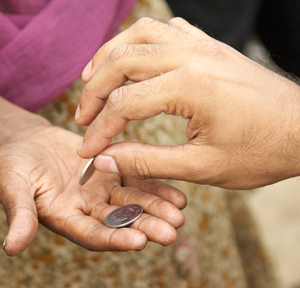Surveys
Denmark, Singapore Among Cleanest Jurisdictions; US Slips In Corruption Index

A number of jurisdictions have slipped in the ratings. Even Denmark, which comes top, has seen one of its largest banks hit by a money laundering scandal.
Denmark has been ranked as the world’s least corrupt country, while New Zealand, Finland, Singapore and Sweden also are judged to be among the cleanest jurisdictions, according to Transparency International.
TI warned that standards are falling in a number of countries and that corruption was weakening faith in democratic government.
The organisation’s Corruption Perceptions Index draws on 13 surveys and expert assessments to measure public sector corruption in 180 countries and territories, giving each a score from zero (highly corrupt) to 100 (very clean).
At 88, Denmark leads the group, with New Zealand on 87, Finland, Sweden and Singapore on 85, Norway on 84, the Netherlands at 82, Canada and Luxembourg at 81 and Germany and the UK at 80. In almost all cases, the scores fell slightly from where they were in 2017.
The past few years have seen a flood of money laundering scandals in various jurisdictions. Ironically, Denmark has seen its largest lender, Danske Bank, embroiled in a money laundering scandal in the Baltics, while Singapore kicked out banks and punished others linked to illicit flows coming from Malaysian state-owned fund 1MDB.
Australia, whose banking system has been battered by some compliance and failings, has an index result of 77; Hong Kong gets a score of 76. Estonia scores 73. The US does not make it into the top 20, with a score of 71, behind France, at 72.
More than two-thirds of countries score below 50, with an average score of only 43. Since 2012, only 20 countries have significantly improved their scores, including Estonia and Côte D’Ivoire, and 16 have significantly declined, including, Australia, Chile and Malta.
At the bottom end of the scale is Somalia, at just 10, with Syria at 13 and South Sudan at 13.
“Cross-analysis with global democracy data reveals a link between corruption and the health of democracies. Full democracies score an average of 75 on the CPI; flawed democracies score an average of 49; hybrid regimes - which show elements of autocratic tendencies – score 35; autocratic regimes perform worst, with an average score of just 30 on the CPI,” Transparency International said.
The US score of 71 is a fall of four points since a year earlier and the country has dropped out of the top 20 countries on the index for the first time since 2011. The low score comes at a time when the US is experiencing “threats to its system of checks and balances as well as an erosion of ethical norms at the highest levels of power”, TI said.
Brazil dropped two points since last year down to 35, also earning its lowest CPI score in seven years.
“Our research makes a clear link between having a healthy democracy and successfully fighting public sector corruption,” Delia Ferreira Rubio, chair of Transparency International, said. “Corruption is much more likely to flourish where democratic foundations are weak and, as we have seen in many countries, where undemocratic and populist politicians can use it to their advantage.”